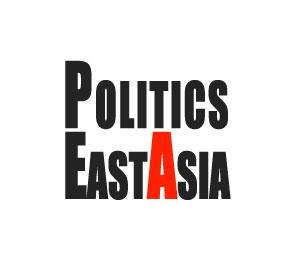Chinese Currency Reforms – What Will World Trade Look Like with a Freer RMB?
A Discussion with Students at Leiden University and Rotterdam’s School of Management
For many years, the Chinese government and its central bank have been criticized for intervening in the exchange rate of the Chinese currency, the Renminbi (RMB). Like other developing economies, China’s authorities had long used an undervalued currency to boost exports and secure economic growth as the country moved from a planned to a market economy. In the past, the RMB has been tied to the US dollar and only been allowed to fluctuate within a narrow band, defined by China’s central bank. The resulting exchange rates, and the trade imbalances that have come with it, have been an issue of continuous conflict between the PRC and its major trade partners, most notably the US and the EU.
Following the recent Third Plenum of the CCP’s Central Committee, the leadership in China has now announced that China’s currency system will be overhauled, in line with the Plenum’s goals of deeper market reform. As the Wall Street Journal reports, the aim is to “widen the yuan’s daily trading band” and “phase out routine intervention in the foreign exchange market”. Many of these reforms have been underway since roughly 2010, but a new round of measures is believed to further boost trade in what is quickly becoming “a top currency for trade finance globally and even more so in Asia”.
In this week’s discussion, we will be taking a look at China’s foreign trade relations and economic growth, and the role that its currency plays in that context. What benefits and drawbacks has China’s past currency policy had for its economy and its international relations, and how might future reforms help the country shift towards a high-income economy? How are other economies affected by the increased importance of the RMB? Will a liberalized Chinese currency provide an opportunity for investors to diversify their portfolio and “hedge against the decline of the U.S. economy”? Is the RMB possibly even on the way to becoming a new reserve currency?
Let us know what you think about these issues.
Share This Post, Choose Your Platform!
8 Comments
Comments are closed.



China’s past currency policies had a number of advantages, most notably it:
> promoted exports as the yuan was undervalued. For example, compare the case where 1Y = 2USD versus the case where the yuan has a lower value at 1Y = 1USD. In the “undervalued” scenario foreigners can get more yuan for the same amount of USD, and therefore import more products from China at the same cost.
> ensured a relatively stable and predictable exchange rate, and therefore removed or diminished any exchange risks that are involved in typical international transactions
It also has disadvantages:
> it biases local production towards exports, resulting in a high degree of dependency on the world market
> similarly, it makes imports from abroad more expensive (because you’ll need a lot of yuan to get the same amount of dollars when compared with the “free floating” case
> it creates unsustainable foreign currency reserves, because the Chinese central government will have to purchase USD with yuan to keep the yuan’s value low (by ensuring a steady supply of the yuan for a low price)
These disadvantages combined with China’s policy objective to increase the country’s production for domestic use warrants the proposed changes in the currency system. However, the advantages are significant and should not be underestimated. Therefore I propose that the word “overhaul” may be too extreme. Instead I propose that the policies should introduce a slow and predictable “transition period”, ensuring that the advantage of stability and predictability is still there while the domestic sector is slowly increasing its foothold in the Chinese economy.
What are your thoughts on such a rather gradual transition period? Could it work? How?
Is the RMB on the way to become a new reserve currency?
A reserve currency is a currency that is held by foreign central banks as protection against balance of payments crises.
To fulfill its functions as a source of stability and to support domestic credit extended by the institution holding the reserves, a reserve currency must have four attributes. One of these is:
“The nation issuing the reserve currency must export the currency in sufficient quantities to act as a reserve currency. Nations can only export currency by running trade deficits, i.e. exporting currency in exchange for goods and services supplied by other nations.”
This means that any nation running trade surpluses cannot issue a reserve currency. However, China currently runs a trade surplus of 285 billion Dollar annually. It imports currencies in exchange for goods and services sold to other nations. So China cannot possibly export enough of its currency to act as a reserve currency.
Source: http://investmentwatchblog.com/the-impossibility-of-china-issuing-a-reserve-currency/
Thank you Tom for opening the discussion. I believe you provide a solid point stating a gradual transition would be more appropriate. Freeing up the RMB could indeed provide China several advantages. However if the exchange rate of this undervalued currency shoots up, China’s exports could be seriously harmed. As the RMB is currently very undervalued, its value is very likely to go up. Additionally it offers a great option to diversify portfolios and to hedge against economic decline in the US. In the current economic circumstances, a completely freed RMB would enjoy an incredible demand worldwide due to these factors. The deregulated RMB can then allow great growth in China’s financial industry. However a too steep increase will harm their production industry and related exports which are really the backbone of their economy.
A gradual transition could thus provide the mentioned benefits without the heavy downsides. Nonetheless I believe the implementation of such a gradual transition is tricky and hard to implement.
Jort, I agree with your nuance but I would like to add that there is a fine line between hedging and speculating. In the light of recent economic developments, I think RMB would become an instrument for speculation and that would not attribute to a sustainable economic growth. Thereby I do not believe that the Chinese should free up the RMB on the short term.
First of all, I would like to argue that the critics of China’s currency policy hold double standards. If one would argue that China is guilty of currency manipulation, then there are many other countries who do the same. The United States for instance keeps the dollar low by keeping interest rates at zero and having the world’s largest debt. Moreover, Japan manages to keeps its currency low by doing the same as China, and buying dollars. All countries have the same motive: they all benefit from a lower currency in exporting.
If desired, how could China change its currency policy? (Obviously, a very broad question….)
Theoretically, China could threaten to sells its US treasuries , which would make the value of the US dollar plummet. This would not be in China’s best interests since it would rapidly devalue its own holdings. Instead, in order to let the yuan float freely, China could opt to allow all its residents to hold foreign currencies and buy foreign assets. As a result, the Chinese government would hold less dollars and decrease the trade imbalance with the US. In this case the US congress would put less pressure on China to increase its currency value. If the value of China’s currency were truly market-determined, it would lead to a more optimal resource allocation across the globe.
I believe that if the Chinese authorities revalue the RMB and the RMB will increase by several percentage, this will have hardly or no influence on the ongoing conflict between China, EU and US. I think that a slight re-evaluation of the RMB is insufficient to cause changes. The US and EU will only get what they want when the RMB will be greatly upgraded. A gradual increase of the RMB will bring China a number of macro-economic benefits, such as by upgrading the Chinese products are more expensive, but the imported products are cheaper. In addition, an upgrade fits into the transformation of the Chinese economy; the conversion of a low-cost manufacturing economy to a high-quality production economy. It may also possible that the production will relocate in the country.
In short, if the Chinese authorities revalue the RMB it will only because of macro-economic reasons and not because the US or EU.
[…] areas of China’s economic development, ranging from issues in the financial markets and in international trade to questions about demographic developments, innovation, and environmental protection in the PRC. […]